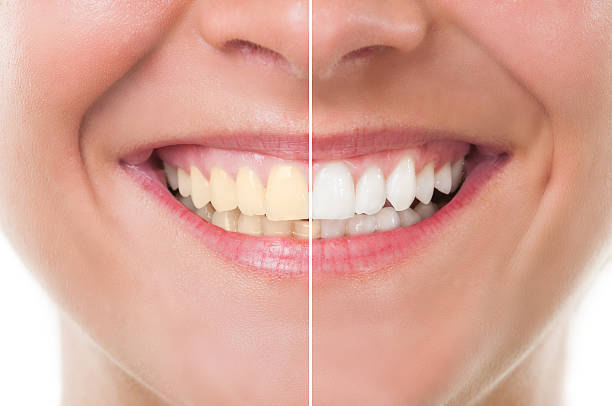You may be wondering how long it will take to whiten your teeth if you’re thinking about doing so. No simple solution exists. The amount of time depends on the condition of your teeth prior to the whitening procedure, the type of treatment you choose, and what caused your teeth to become discolored in the first place. One technique can finish in as little as 60 minutes, while others can take weeks.
Let’s dive deeper!
How Long Does It Take to Whiten Teeth?
The type of whitener that is suggested for you to use, as well as any habits you may have that could interfere with the procedure, will determine how long it will take. We frequently overlook the fact that these procedures gradually eliminate stains as opposed to immediately. It’s best to rely on professional dental procedures for the best results, which last for two to three years.
But maintaining good oral hygiene, using specific products, and making sure to get regular dental checkups can help to prolong the effects of these procedures.
Here are some things you can do:
• Use the dentist-recommended whitening toothpaste and brush twice daily for two to six weeks.
• You can use a recognized teeth-whitening mouthwash, which typically takes three months to show results.
• The most effective at-home treatments with a six-month lifespan are whitening strips.
• Although whitening pens are an option, their effects are minimal.
• The effects of a whitening gel tray can last between two and four weeks and can be used at home for a week.
• You can have chairside bleaching done for a maximum result that lasts one to three weeks, but it should only be done with a dentist’s advice.

Will There Be Side Effects from Teeth Whitening?
Teeth and gum sensitivity may be brought on by the active ingredients in tooth whiteners. Typically, this doesn’t last very long. Any whitener containing peroxide or abrasives can cause discomfort for some people when used over an extended period of time.
There is also the potential for more serious side effects, including:
• Gum burns and irritation can be prevented by completely covering the gums before treatment and using custom-fitted whitening trays. This is more likely to happen when using gel trays at home or in a chair. Gum burns and irritations, if they do happen, are typically minor and transient.
• Gum whitening: The gums may become bleached and temporarily lose their color.
• gastrointestinal irritation or distress: If you swallow a whitening product, you might experience a mild stomachache or a burning sensation in your throat.
• Dentin or enamel damage to the teeth: the evidence is conflicting. Any type of whitener that uses potent bleaching agents or abrasives can cause surface grooves on teeth and enamel thinning.
During or after teeth whitening, some users complain of tooth pain. Call your dentist if you feel any kind of pain, burning, or extreme sensitivity.
Occasionally, the whitening agent may enter a cavity or crack in a tooth, resulting in excruciating pain and a pressing need for a trip to the dentist.
Common Ways to Whiten Teeth
Professional Teeth Whitening.
The quickest and most effective way to whiten your teeth is through this method. Patients leave after this quick procedure with teeth that are 2-3 shades lighter than when they entered. It can take anywhere from 60 to 90 minutes.
Whitening Strips
People tend to gravitate toward whitening strips because they are the most popular method. However, they may not always be the best choice for sensitive teeth. If you choose this method, you must be very dedicated because they must be worn for 1-2 hours per day for two to three weeks.
Whitening Rinses
The technique that typically takes the longest to produce results is bleaching rinses. Spend a few minutes every day using the rinse.
UV Lights Paired With Gel
Gel and UV lights are currently very popular. The gel is intended to be applied in conjunction with a blue UV light and is typically peroxide-based. According to claims, the UV light activates the peroxide and quickens the whitening procedure. Within 10–14 days if you use it consistently, you’ll start to see results.
Whitening Toothpaste
Whitening toothpaste has enzymes in it that remove stains as you brush your teeth. Results may take two to six weeks if you repeat this twice daily.
The Bottom Line
How long does tooth whitening take? The condition of the teeth, the reason they became discolored in the first place, and the kind of treatment the patient wants will all play a significant role in the answer. For teeth whitening, there are numerous different treatment options.
Although there are numerous DIY teeth-whitening methods available, if you want a procedure with a long-lasting effect, it is best to schedule a consultation with a dentist.



